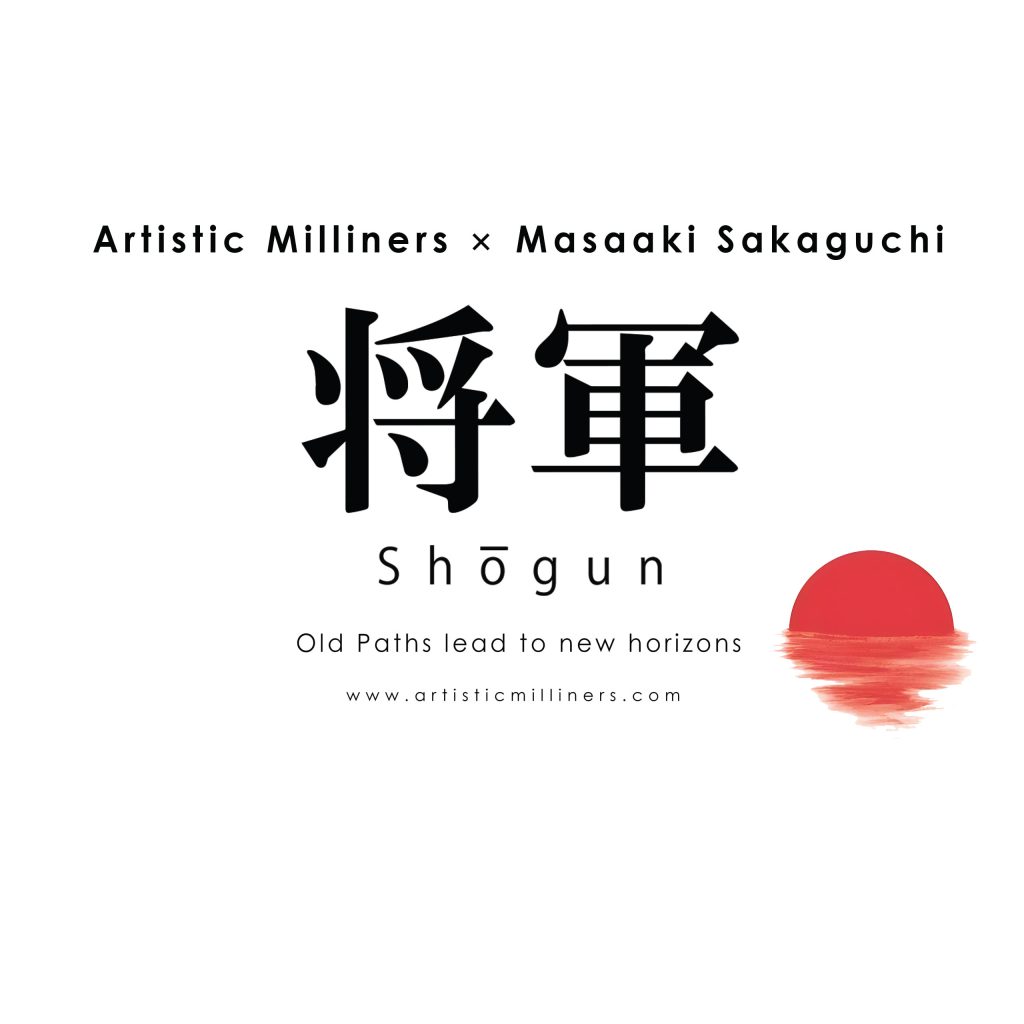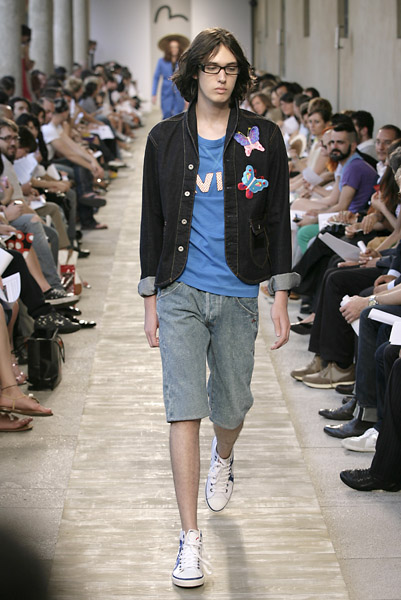Artistic Milliners has been fore-runner in global textile industry and has spearhead denim innovation and sustainability, continually pushing the boundaries of what a pair of jeans can be!
Their collections are valued by global brands and retailers and are keenly awaited . We are highly excited that the AM team will be launching their Aw25 collection at our Japan show !
We recently interviewd Mr. Baber Sultan , Director Product & Research for his insights on what they have been doing lately and the collection that they will be launching at our Japan show . We share the discussion below :
a) Artistic Milliners is recognized as one of the most reputed global denim producers. What do you think have been the key ingredients for this success.
If I had to sum it up, I believe Artistic Milliner’s success as a globally recognized denim producer stems from a few key principles. We relentlessly pursue advancements in denim fabrics and production processes, always seeking to push the boundaries of innovation. Sustainability is at the heart of everything we do, driving us to minimize our environmental footprint. As a vertically integrated company, we oversee every step of the process in-house, ensuring exceptional quality and flexibility. We collaborate closely with global brands, understanding their unique needs and delivering tailored denim solutions. And of course, we empower our people and invest in cutting-edge technology. Lastly, we recognize our responsibility extends beyond the products – we are committed to ethical practices and making a positive impact on our communities.
b) Recently we hear about a lot of focus on Regenerative Cotton by AM. Why do you think this is important for you? Do you think regenerative cotton can be more important than other sustainable cotton fibers.
Yes, regenerative cotton holds the potential to become even more important than other existing sustainable cotton fibers. Unlike organic options that focus on minimizing harm, or recycled fibers that conserve resources, regenerative cotton proactively rebuilds soil health, promotes biodiversity, and captures carbon. This results in stronger, higher-quality fibers for more durable denim while offering significant environmental benefits. While challenges like upfront investment in new farming practices and developing consistent certifications exist, the overall benefits make regenerative cotton a compelling choice for a more holistic and long-term sustainable denim industry. As consumer awareness and supply increase, expect to see regenerative cotton play an increasingly dominant role in denim production. That’s why we’ve ventured into the space with AM-REGEN, as part of a holistic pilot project aimed at exploring more sustainable cotton cultivation methods. We are providing regenerative cotton to partners such as Jack & Jones.
The regenerative agriculture pilot project is being executed in Rahim Yar Khan, Pakistan, with close collaboration between Artistic Milliners, the World Wildlife Fund-Pakistan, and local government bodies. The initiative follows Control Union’s certification programme, RegenAgri.
c) Star Fades has been a success story in nearshoring and sustainable quick response to market needs. You are also expanding this to Guatemala in some way. Can you give more details on the same.
Yes, when SFI has been great for us. When we acquired them in 2020 we had a vision: to be the one-stop shop for denim development with a global reach. Guatemala is a step in that direction.
SFI customers can now take advantage of our partner Denimville’s speedy close-to-market production. Known for quick turns on samples and production, the more than 750,000-square-foot facility can produce 400,000 units and 1,500 samples per month. The factory offers garment sewing, washing and dyeing, sustainable ozone and waterless finishing, and dry processing. This network can save six to seven weeks of transportation time compared to production coming from Asia, SFI reports, allowing customers to respond to trends, avoid retail markdowns and offer just-in-time deliveries. Ultimately we want our Western Hemisphere customers seamlessly execute their vision with our teams from fabric to finishing, and our teams from Pakistan, Mexico, and Guatemala are geared to help them do that.
d) We thank you for deciding to launch your AW 24-25 collection at Denimsandjeans Japan in March’24. Can we have some hints on what makes this collection special.
The collection we are perhaps most excited about is one that stems from a collaboration with Mr. Masaaki Sakaguchi, called Shogun. Shogun aims to combine the timeless allure of Japanese denim, reimagined for the modern wardrobe. It honors the legendary craftsmanship of Japan, blending it seamlessly with cutting-edge advancements for unparalleled comfort, superior washability, and a conscious approach to production showcasing the slubby, textured beauty that made Japanese denim famous, infused with subtle stretch for everyday ease. We truly believe in Japan being the “second root” of denim and the honour of working with a master like Sakaguchi san is meant to encapsulate that.

e) We understand AM is trying to increase its recycled fibers usage in different ways. How has been the progress in this direction?
There has! We recently worked with Lenzing on a new approach to blending Tencel and recycled cotton fibers. The product is called 32MM, a new Tencel fiber that is optimized to create soft fabrications that have the authentic character of a classic cotton jean. The fiber’s unique structure has enabled us to scale its use of recycled cotton in our fabrics. Compared to traditional Tencel, the shorter 32MM fiber has better compatibility with cotton and allows it to blend more cohesively with fibers of modest length. It also has a greater surface area, which allows more recycled fiber to bind to it. Traditionally Tencel can be blended with up to 30 percent recycled cotton, but 32MM can carry up to 50 percent as per our research so far. The recycled fibers come from our proprietary recycling facility Circular Park.
f) Reducing impact through better dyes usage becomes critical to reduce carbon footprint. Do you think working in this direction is also helping you to give better products while reducing the footprint .
Yes it certainly has, and has led to some very fruitful and innovative collaborations. We worked with Archroma to leverage their Diresul Evolution Black dyestuff for our collections. It is said to be their cleanest sulfur black dye ever and has enabled us achieve authentic black denim and washdown effects with a lower impact compared to standard Sulfur Black 1 liquid. Overall it uses 58 percent fewer natural resources and produces less carbon dioxide during dye synthesis compared to standard black dyes, the company states. This reduces workers’ exposure to harmful compounds by 59 percent. We also partnered with partnered with Leonardo DiCaprio backed biochemicals innovator Nature Coatings on a range of 100-percent cotton products made with BioBlack TX, an alternative to petroleum-based black-tone dye. The carbon-negative black pigment is derived from industrial wood waste that comes from sustainably managed, certified sources.
For contacting them, please mail here.




